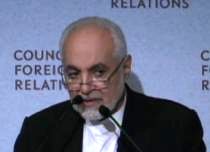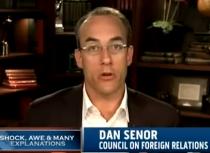Feelings in the news: equivalency and the exception
Charley Bravo - 9/17/10
Media voices speaking against Mosques and Islam have cited feelings, claiming "gross insensitivity". Repeated in myriad venues, their point is that 9/11 families, New Yorkers or Americans at large have such strong feelings that issues aren't really about 1st Amendment rights but, rather, about a lack of sensitivity. The outsiders and minorities are neither respectful nor tactful in the presence of mainstream gut intuitions.
It is not presently known how many who advance this line have at some point attacked the phenomenon of "political correctness" or made snarky references to singing Kumbaya in the face of emotively driven sensibilities.
William Saletan asks What is behind those feelings? He argues that, while people are entitled to feelings (especially those based on suffering), such entitlement breaks down upon attempts to socially or politically restrict whole classes. Yet it remains unclear if anything rational is indeed behind these feelings such that those who hold them would acknowledge his subtle distinction.
William Dalrymple remarks that Feisal Abdul Rauf is a Sufi imam and, moreover, that Sufism is an esoteric, mystical form of Islam radical only in its severe opposition to jihadist Wahhabism. This and his point that this New York imam is part of a vanguard of Islamic opposition to extremism (risking their lives in a war on terror) all over the Muslim world has not been a talking point in any Tea Party or Republican presentations. Feelings, in fact nothing more than feelings, appear sufficient regardless of anything that might deflate them.
In this atmosphere of pure feeling, where feelings are privileged and sanctified as such, both building a place of worsip and buring the Koran are claimed to be equivalent. "I analyze them both the same way", remarks Rudi Giuliani on Meet The Press. Apparently based on the idea that reconcilliation involves the wholesale consumption of one side's uninterrogated feelings, Giuliani goes on to remark after "careful analysis" that the imam's character is compromised by good and bad elements. "There's the good imam and the bad imam"; one is about "reconcilliation and healing", says Giuliani, the other is about saying "America is an accessory to September 11". "There's the good imam and the bad imam"; one is about "reconcilliation and healing", says Giuliani, the other is about saying "America is an accessory to September 11".
The "bad imam" is the "terrorist sympathizing imam" according to Rick Lazio.. After 9/11 Rauf said on 60 Minutes that "I wouldn't say that the United States deserved what happened, but the United States policies were an accessory to the crime that happened." By "accessory" he went on to remark: "Because we've been accessory to a lot of innocent lives dying in the world. In fact, in the most direct sense, Osama bin Laden is made in the U.S.A."
Feelings again appear to prompt equivalency, here between analytical comments which roughly mirror historical fact and "sympathizing" in the sense of some  apologetics of approval for terrorism. But in the search for clues about what could be behind these feelings, suddenly new evidence appears which suggests the hunt may unearth something other than feelings alone. apologetics of approval for terrorism. But in the search for clues about what could be behind these feelings, suddenly new evidence appears which suggests the hunt may unearth something other than feelings alone.
Dan Senor, a former Pentagon and White House advisor during the Bush Administration - and Fox News Contributor, appeared on MSNBC in August of this year offering what some have called a new reason for the Iraq war. According to Senor, his view "at the time" was that there could be no meaningful response to 9/11:
"...as long as there were angry young men on the streets.. angry because of the dreadful socio-economic conditions... living under governments propped up by Americans. And they had no outlet, zero outlet, no free speech, no election..no electoral outlet to change their circumstances. You bet that that anger and resentment... would wind up in the worst possible way on our doormat. And unless we tried to inject some kind of reform in the region so that people had an outlet to change governments...and speak their minds that..that we'd face another 9/11.
I'm simply saying that the strongest case for doing something in the Middle East after 9/11 wasn't for revenge, it simply is to say that unless we try to stoke some kind of reform...and change out some government... we'd never have a shot at anything"
No one has attacked Dan Senor in the media as a terrorist sympathizer for his remarks. And yet, he faults a history of US support for undemocratic regimes for creating an anger that was bound to end up on our doorstep. He says that our war on Iraq was best justified by a need to clean up the region (and presumbably our image) so it would not happen again.
David Corn in the same segment scoffs at the claim that this was an argument within administration circles - but he appears to miss the fact that had it been, it would be an expression of the same analysis and concern for which people outside the Administration were being labeled terrorist sympathizers. Others expressing anything similar were branded as "blaming America first" or asked "why do you hate America?".
Perhaps it wasn't an argument that was actually made, since Senor only claims it was the "strongest case" - and this may be apparent now in retrospect. But whatever the case may be, Senor so far has not been targeted either as insensitive or a terrorist sympathizer under the white hot glare of post-9/11 feelings. The search for what is behind these feelings now has to factor in the apparent fact that only some people's remarks are regarded as an affont.
|

